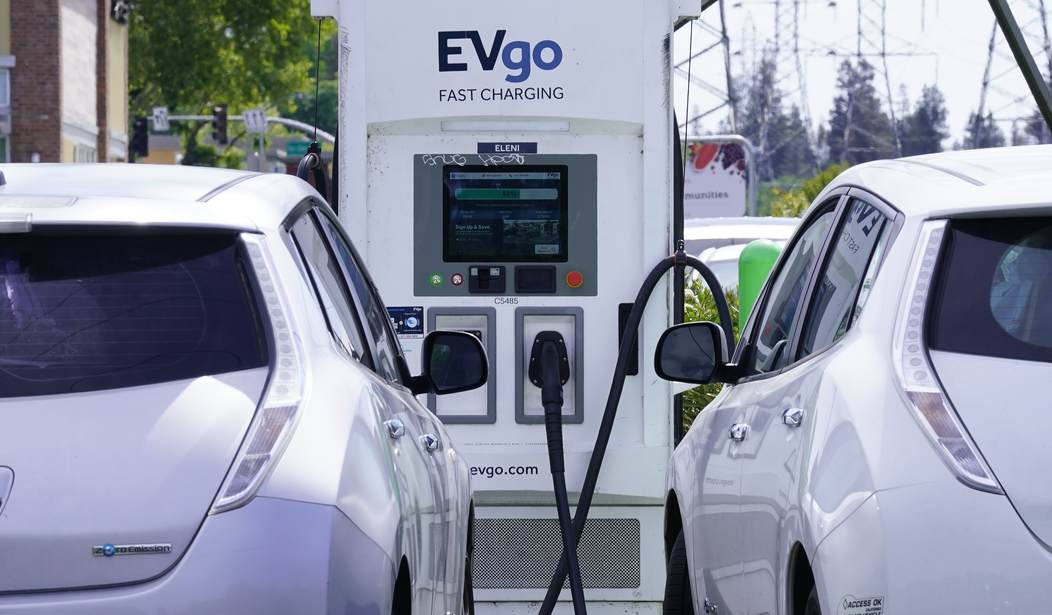Some folks only learn through experience. That can be a tough process. Far better to learn from those who learned the hard way—and gain knowledge from observing others. Your state might want to keep that in mind when it comes to the electric-bus fad.
In August, Delaware Governor John Carney (D) signed into law House Bill 10, which “establishes targets for annual purchase of electric school buses through fiscal year 2030.” Like Delaware’s school bus fleet, many transit agencies are moving to battery-powered buses in response to the California mandate of selling only zero-emission vehicles by 2035. So, if you are a venture capitalist, or just a kitchen table trader, maybe you thought investing in a high-profile electric bus manufacturer might be a good bet.
And a pioneer and leader in the electric bus business, Proterra, might have been an excellent choice. Proterra has been around for nearly twenty years, and it is so well-connected that the Biden Administration in February appointed Proterra’s CEO to serve on the White House Export Council, the principal national advisory board on international trade. Energy Secretary Jennifer Granholm served on Proterra’s Board of Directors and owned shares of the company even after being confirmed to head the US Department of Energy. (Conflict of interest, anyone?) In numerous speeches, the President has praised Proterra as a success story in the green energy movement; to wit, both the Vice President and the Transportation Secretary toured their facility. Moreover, $5.5 billion was provided by the bipartisan infrastructure law and billions more through other federal grant programs to convert diesel-powered fleets around the country to electric buses.
Recommended
But hopefully you didn’t buy stock in Proterra, because you certainly would have lost your investment. In August, Proterra filed for Chapter 11 bankruptcy protection. Its stock, which was selling at $7.30 a share in November of last year, is now worth $0.03 a share just a year later — much less than 1% of its peak value. It had federal funding, it had administration backing, it had state and local legislation on its side.
So, what went horribly wrong?
Proterra noted that “contracts signed in 2021 proved to be priced below where the manufacturing costs were ultimately realized in 2022.” They also argued that transit companies want specialized buses, not simply ones available “off the shelf.” This requires tailoring each order specifically to the consumer, which inflates costs.
But the real reason is that their buses have been plagued with problems. Buses caught on fire or frequently broke down, batteries froze in cold weather, and drivetrains had issues pulling a bus load of children up hills. But the most prevalent issue associated with Proterra’s buses is that when they break down, replacement parts are so difficult to get that the buses sit idle for months on end. Not very helpful—and potentially dangerous—when your children are forced to ride in electric buses to get to school.
Delaware State Representative Ronald E. Gray (R) noted that two electric buses are required to replace a single diesel bus because it is impossible to recharge the bus from its morning run before the afternoon return run begins. This would cost Delaware taxpayers an additional $2.6 million during just the first two years of HB10’s implementation. Employees at DelDOT also have expressed their concern that more than one bus is needed to complete many bus routes. The same would apply to other states, but no doubt at higher costs to larger populations.
Delaware’s legislature and the governor’s office have pushed electric vehicles as a way to make Delaware’s environment clean and green. But although touted as being “clean and green,” electric vehicles aren’t. The process to mine the rare earth elements that are needed for the batteries creates copious amounts of toxic waste, destroys land and ecosystems through surface mining where vast amounts of rock and soil are removed, and utilizes child and slave labor in poor areas such as the Democratic Republic of the Congo and southeast Asia.
Proterra joins Solyndra, A123, Pink Energy (Power Home Solar), and Lordstown Motors (an EV truck manufacturer) on the ever-growing list of high-profile, federally backed companies that have wasted taxpayer money and gone the way of the dinosaur. Policymakers at federal, state, and local levels must learn that the free market is better at selecting true winners than a legislator or bureaucrat with nothing to lose by wasting hard-earned tax money on these fly-by-night schemes.
David R. Legates, Ph.D., is Professor Emeritus at the University of Delaware. Currently he is Director of Research and Education for the Cornwall Alliance for the Stewardship of Creation and serves on the advisory board of A Better Delaware.

























Join the conversation as a VIP Member